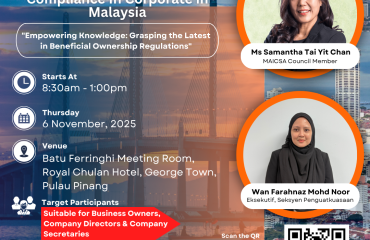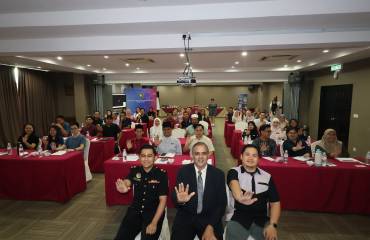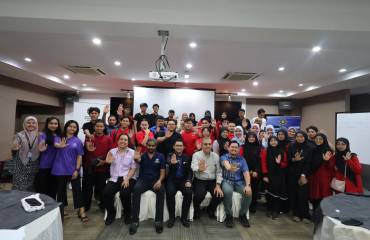Transparency International released the above report which is part of the Promoting Revenue Transparency (“PRT”) Project of TI in collaboration with Revenue Watch Institute and Publish What You Pay coalition members. PRT aims at raising awareness amongst all stakeholders of the importance of revenue transparency and how his may be achieved, sustained and mainstreamed.
The broad objectives are to measure revenue transparency and steps for improvement, develop broad standards, and support the use of revenue transparency standards and measures of performance by companies, rating agencies, investors, government regulators and civil society.
The focus on revenue transparency is important as a lack of transparency breeds corruption, theft, and mismanagement. Revenue transparency will contribute to sustainable development, reduce corruption and improve governance.
This pilot Report covers 42 oil and gas companies and 21 countries. Malaysia’s national oil company, Petroliam Nasional Berhad (PETRONAS).
PETRONAS cooperated fully in the research and verification of the data.
The following are the key findings of the Report:
- Revenue Transparency is not yet common practice in the industry. The weakest area is reporting on payments to host governments.
- Wide variation exists in company practice. Leading companies demonstrate that revenue transparency is possible.
- Good practice in revenue transparency starts at home, where regulation has a strong influence on current company revenue transparency practices.
- Regulatory practices produce systematic impact. If there are more demanding regulations at home, companies are likely to report consistently in all their countries of operation. Often though, national oil company behaviour at home and abroad is different, suggesting that host regulations are not enough.
- Disclosure of information on revenue transparency is hindered by diverse formats of reporting that are different to obtain, interpret and compare across companies and countries.
• If companies publish what they pay governments to extract resources, citizens are empowered to hold their public officials to account. Most companies do not do this.
• Oil and Gas companies need to report revenues proactively on a country-by-country basis. Governments should report what they receive for cross-verification.
• Transparent reporting benefits poor people in resource rich countries because civil society can hold governments accountable if they have the information.
• Companies should act quickly to introduce proactive reporting, rather than wait for mandatory legislation. Greater transparency by some of the richest companies in the world should help million of dollars reach some of the poorest people.
- Two-thirds of the poorest people live in resource rich countries
(Nigeria just launched a probe to account for US$500bn in missing oil revenues over the past half century.)
- TI Report finds only one third of the 42 companies evaluated are considered high performers when it comes to revenue transparency
- Transparency is possible: TI Report shows best practice exists (eg. StatoilHydro and Talisman Energy)
- Transparency pays off: Greater transparency can enhance confidence in the financial markets and with stakeholders. As high performers in the report show, transparency and profitability are not mutually exclusive.
- Transparency is a shared responsibility – companies need to work with governments and civil society to promote transparent reporting.
- Home and host governments should be encouraged to introduce legislation for country-by-country revenue reporting.
- Extractive Industries Transparency Initiative is the best current multi-stakeholder effort in this field. However, company supporters do not report systematically in all countries.
- TI uses strategic engagement to work with companies to promote the goal of revenue transparency. Companies improved the report questionnaire.
- TI calls for uniform, easy-to-read, country-by-country reporting requirements from home and host governments and from independent regulatory standards boards (ie. Accounting and stock exchange listing requirements)
For info further information, please contact us.







